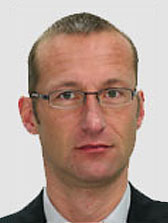Chondrogene Progenitorzellen in den späten Stadien der Arthrose beim Menschen
The regeneration of diseased hyaline cartilage continues to be a great challenge, mainly because degenerationcaused either by major injury or by age-related processescan overextend the tissues self-renewal capacity.
Adult osteoarthritic cartilage, without signs of rheumatoid involvement, was obtained from the knee joints of patients (ages: 6575 years) suffering from late-stage osteoarthritis after total knee replacement. Light microscopy, ultrastructural investigations, cell isolation, cloning and immortalization, as well as multipotent differentiation experiments were performed. Furthermore, quantitative real-time RT-PCR, Western blotting as well as RNA interference were applied.
We showed, that repair tissue from late stages of osteoarthritis in humans harbors a unique progenitor cell population, termed chondrogenic progenitor cells (CPCs). These exhibit stem cell characteristics such as clonogenicity, multipotency, and migratory activity. The isolated CPCs were shown to populate diseased tissue ex vivo. Down-regulation of the osteogenic transcription factor runx-2 enhanced the expression of the chondrogenic transcription factor sox-9. This, in turn, increased the matrix synthesis potential of the CPCs. Unpublished results show gender differences of the CPCs and that they exhibit estrogen and progesterone receptors. Treatment, especially with estrogen, at least in vitro, can enhance their chondrogenic potential.
Our results offer new insights into the biology of progenitor cells in the context of diseased cartilage tissue. Our work may be relevant in the development of novel therapeutics for the later stages of osteoarthritis.
|
Sonnabend, 13. November 2010 Zeit: 9:20-9:40 Uhr Ort: Forum, Analog Ebene/Etage: 0 |

Prof. Dr. Nicolai Miosge
| Copyright © 2010 Quintessenz Verlags-GmbH, Berlin |